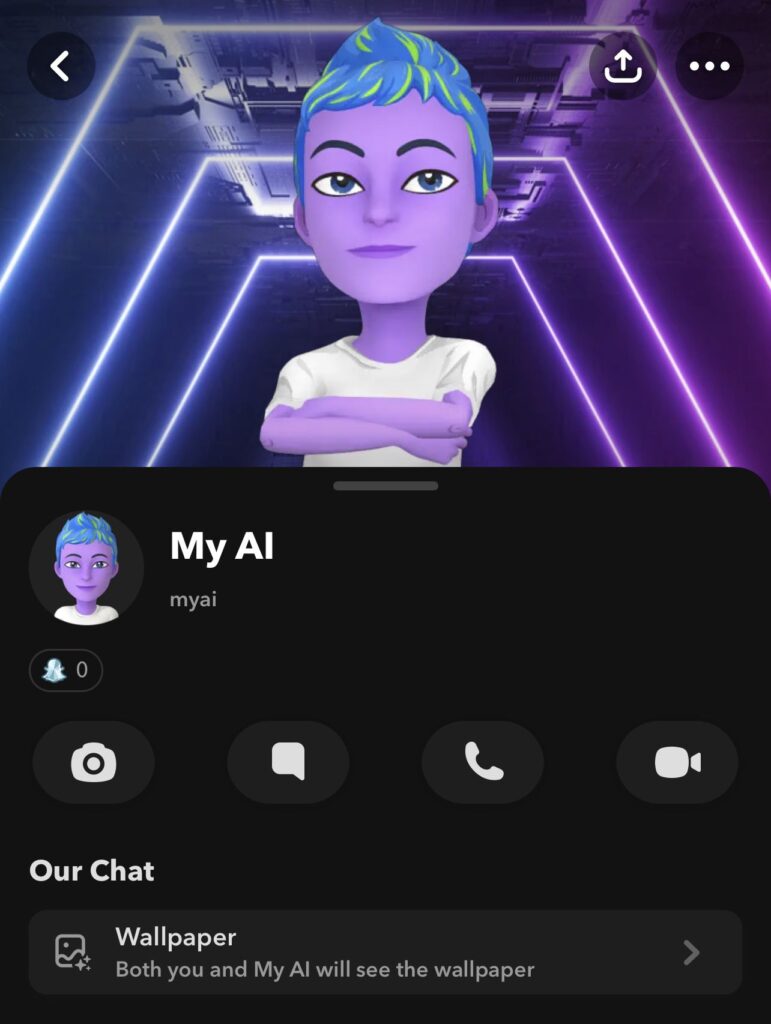March 27, 2023 by Keegan Reinhart (‘25)
Since so many high schoolers use the social media platform Snapchat, the news that a new feature had been added to the app’s premium subscription, Snapchat+, traveled quickly. This application uses technology to create an instant-responding AI Snapchat friend.
“My AI” is the name you will see pinned at the top of your chat feed when you open the app. The technology is a new interactive experiment meant to act as one of your peers you can talk to–giving lengthy, detailed responses. It utilizes the new GPT technology and is quite impressive in its advancement and ability to hold a conversation. However, as AI technology becomes more accessible, the negatives of the technology become clear.

For young, growing adolescents whose entire world could seem to exist online, their new “friend” My AI could prevent them from developing real relationships. Many young people suffer from self-doubt, depression, anxiety, and more that can lead them to feel isolated. Social media can also often amplify these feelings of loneliness and exclusion. Due to the fact that My AI is Artificial Intelligence, it does not have real emotions. My AI doesn’t judge, My AI won’t talk behind your back, My AI won’t share your secrets. My AI is the perfect online friend. But could this perfection cause users to crutch on its impartial “personality?”
Problematic impacts could arise in young adults who already struggle with social interactions as an effect of COVID-19 distancing. Communicating with an AI regularly can lead to a struggle to create real social connections; social connections with people who, unlike the AI, have flaws, have emotions, and make mistakes. The on-the-spot reply of the technology is equally as concerning in a society already struggling with receiving instant gratification in everything we do. You can buy something online instantly, you can order food instantly, you can get something shipped instantly, and with the addition of Snapchat AI, you have a rapid response from a quasi-friend. Is the next generation growing up to expect everything the second they request it?
But for the even younger population of users, barely even in middle school, they may not even understand what an AI is yet. They may ask the AI personal questions, with answers that will impact how they interact with people in their own lives and affect the decisions they make. Would you trust an AI to be your child’s parent? The real dangers of this scenario are limited, however, advice from an AI comes in coded formulas, not a real human thought process. Kids growing up getting feedback from this tool is revolutionary, but they may be too young to grasp the full limitations of their pinned Snapchat friend.
